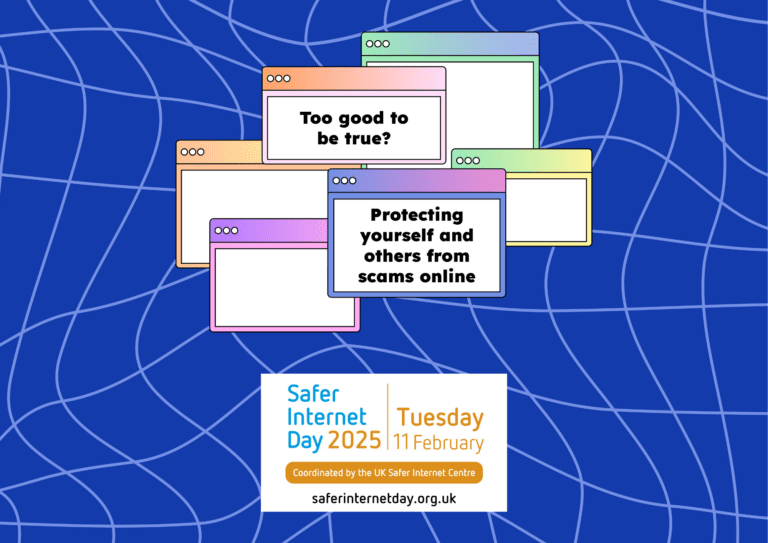
Posted 11 February 2025
Safer Internet Day 2025
This February 11th is Safer Internet Day. UK Safer Internet Day is all about highlighting the ongoing issues with online scams, and the need for awareness and vigilance. The theme this year is all about online scam safety, with the theme: “Too good to be true? Protecting yourself and others from scams online”. The UK Safer Internet Day website is packed full of information about how to keep yourself safe on the internet – we highly recommend checking it out!
The first step to making the internet safer for yourself and those you care about is to stop and reflect on your online behaviours. Whether you’re “doom-scrolling”, generally browsing, or sharing your life through social media, understanding more about how the internet is used by scammers and what people are doing to combat it allows you to bring these discussions up with people you care about the most.
Learn to spot and avoid scam looking adverts that seem too good to be true, and don’t share information on the internet about yourself that a scammer could use. Every once in a while, take a break from social media and the constant flow of information. Even just an hour or two away can greatly improve your mental health!
The Challenge of Online Scams
As we spend more time online, scams are getting more advanced. Scammers are using new technology to trick people, so it is important to stay alert. Some of the hot topics this year include:
- Generative AI: Benefits and Risks: Generative AI can create real-looking content, like text, images, and videos. Learn about the strengths and weaknesses of AI.
- Government & Internet Industries’ Roles: To fight scams, the government needs to work with internet companies. You can learn about what the government is doing to achieve this.
- Internet Companies’ Actions: Some companies, like O2, are using AI tools to disrupt scammers.
- Young People’s Insights: Young people, who are familiar with digital tools, have important views on online safety and should be empowered to have a say in creating safety tools and policies. They’ve requested changes such as better digital literacy education in schools, easier ways to report scams, and stricter social media policies against scams.